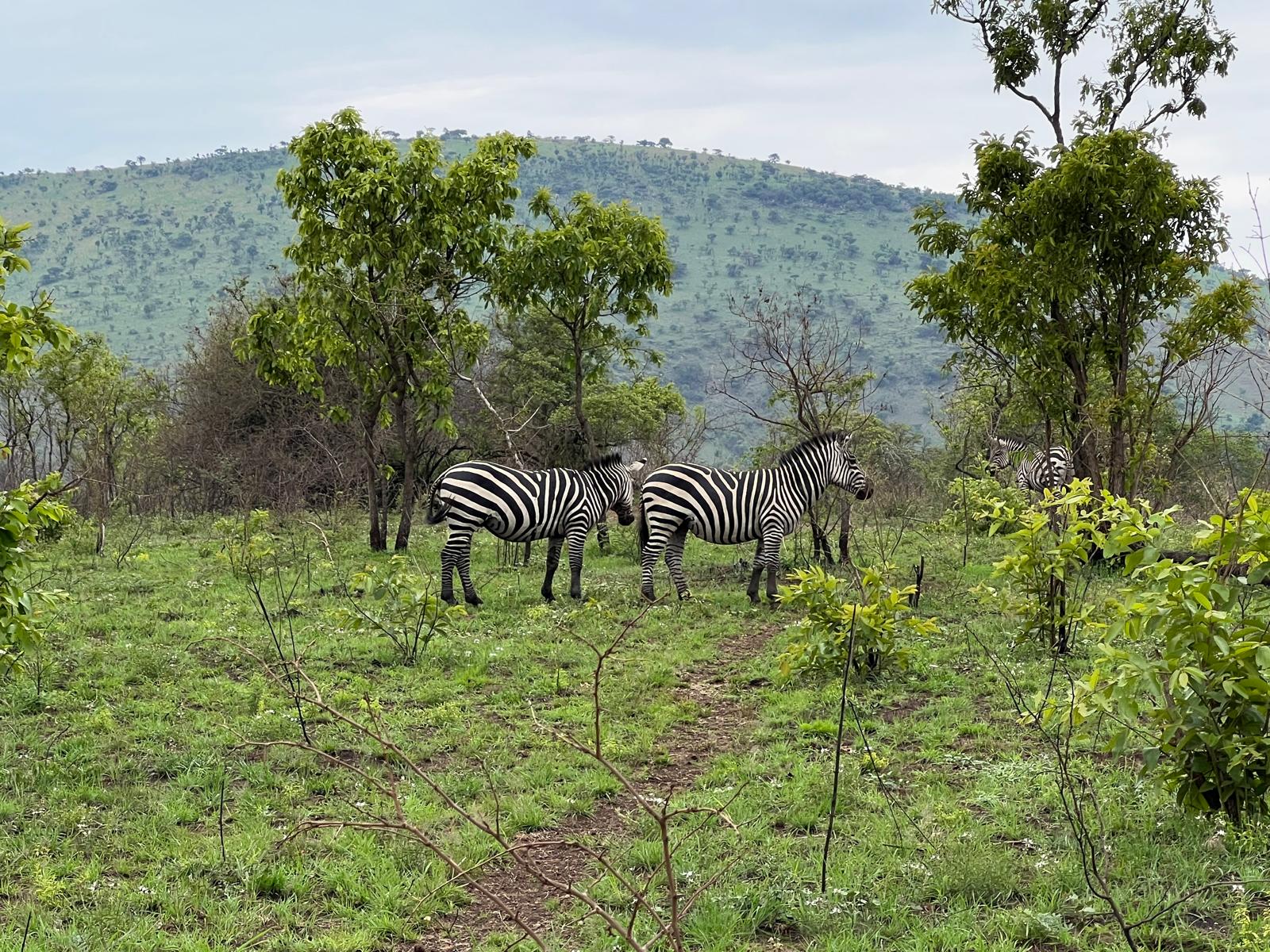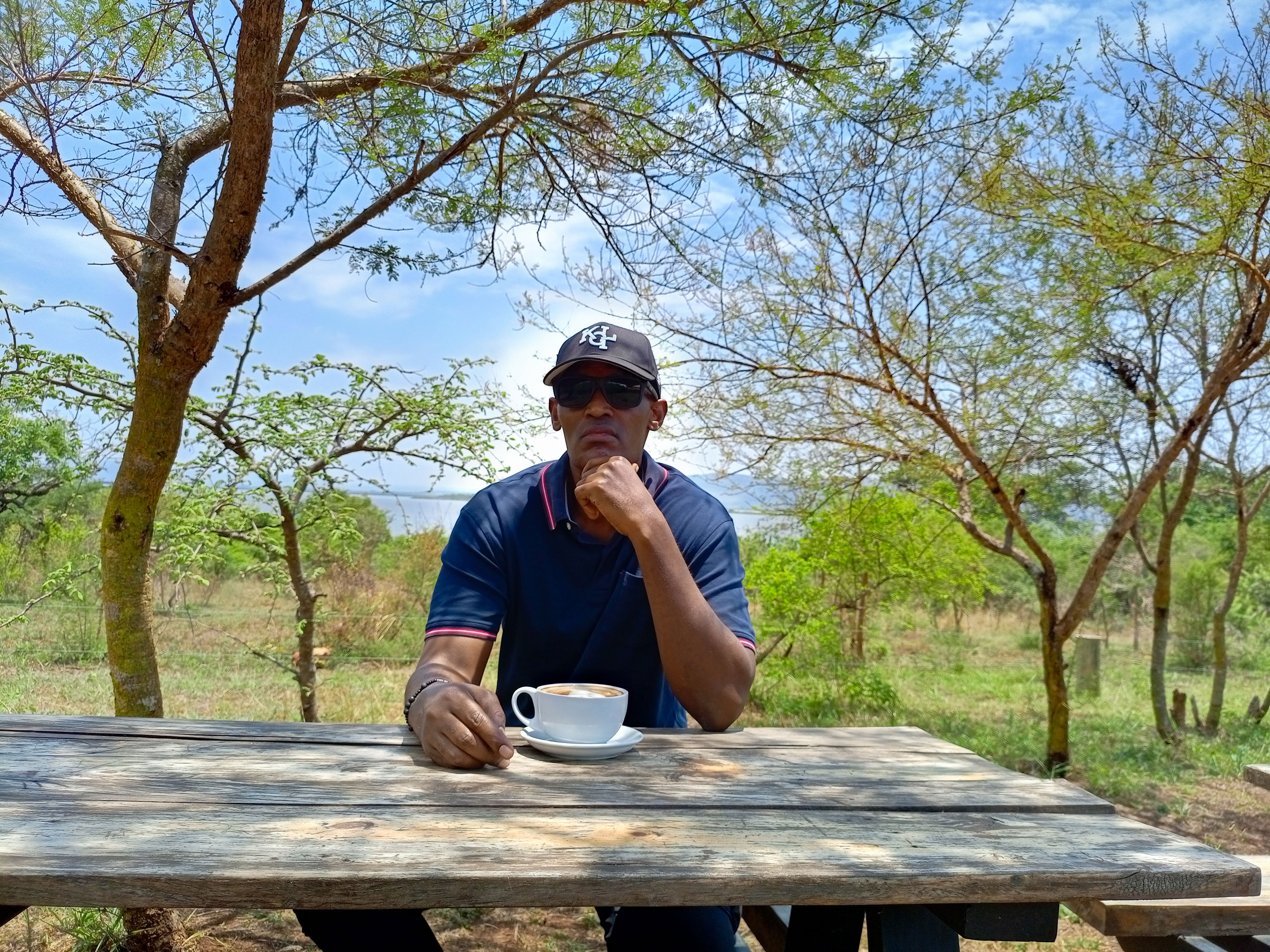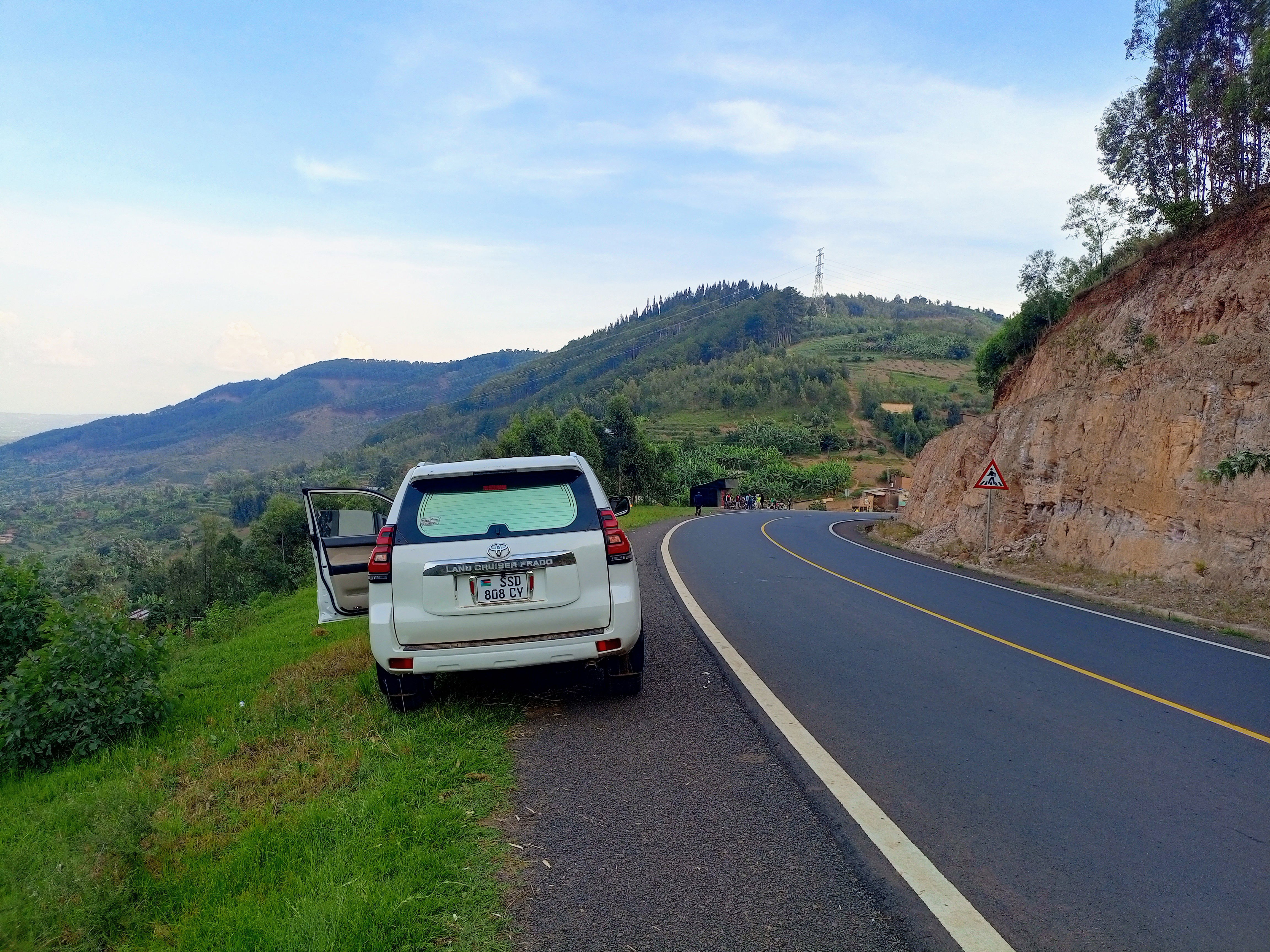From Dawn to Dusk: Through Savannah Trails and Northern Hills
I left Kigali at 4 a.m., when the city was still wrapped in silence and the streets glistened faintly under sleepy streetlights. My destination: Akagera National Park. Well, not exactly — Akagera was just the scenic detour before the grand finale. My real goal was to reach La Paillotte Cyuza Island, a peaceful hideaway floating on Lake Burera, where I planned to spend the night surrounded by water, mist, and mountains.
The plan was simple but thrilling: enter Akagera through the South Gate, drive across the park, exit through the North, grab some mocktails at Mantis EPIC Hotel & Suites in Nyagatare, and then cruise toward Burera via Gicumbi. It sounded like an adventure stitched together by asphalt, dust, and a string of unpredictable moments.
I filled up in Kigali and topped off again at Kabarondo Junction — the last trustworthy petrol station before the wilderness. There’s another one in Rwinkwavu, but that one’s a gamble; sometimes you find fuel, sometimes you don’t. I wasn’t taking chances — not on a day like this.

Akagera National Park
By 6:30 a.m., I was rolling through Akagera’s South Gate. But first, I made a pit stop at Akagera Transit Lodge — the unsung hero for early risers like me. A hot cup of coffee, a bag of snacks, and I was ready for the wild. The first rays of sunlight were brushing against the savannah, turning the tall grass into rivers of gold.
My first stop was Shakani Campsite, where Lake Shakani lay still as a mirror, reflecting a sky so calm it almost looked painted. I stretched, breathed in the crisp air, and let the wilderness wake me up properly. Somewhere nearby, a hippo surfaced, breaking the stillness with a quiet ripple that spread across the lake.
From there, I pressed on northward, deeper into the park’s heart. By the time I reached Lake Mihindi Café, the sun was high and the air heavy with the scent of dust and grass. I ordered coffee again — because why not? I had planned for this to be lunch, but the snacks I had been munching in the car had spoiled my appetite. All I needed was another dose of caffeine.

Coffee break on the shore of Lake Mihindi
Beyond Lake Mihindi, the drive turned slower — not because of fatigue, but because nature demanded it. The northern part of Akagera is a living theater. Giraffes strutted gracefully across the track, zebras grazed in perfect harmony, and elephants appeared from the bush like ancient guardians. Rhinos, buffaloes, waterbucks, warthogs — each encounter felt like a grand performance.
Then came the tricky part—distinguishing the look-alikes. Primates of every kind flitted through the canopy, their movements a dizzying blur. Antelopes, impalas, and deer merged into one shifting herd, their forms so alike that my eyes couldn’t keep up. And in that chaotic blur of fur and motion, I thought I spotted an okapi—but maybe it was one of its cousins.
I didn’t spot any big cats, but that didn’t bother me. Predators prefer twilight, and I was on a daytime dash. Besides, I’ve always had a soft spot for giraffes and zebras — and that day, they were everywhere, standing tall and wild against the horizon.
As the sun began to slide westward, I made my way toward the North Gate, ready to swap the roar of the savannah for the calm rhythm of the northeastern hills. The next leg — from Akagera to Lake Burera — would take me through Nyagatare, Gicumbi, and Musanze, tracing Rwanda’s changing landscape from wild plains to highland lakes.

On my way to the Northern Province
That night on an island in Lake Burera was just the beginning — the first night of a long, soul-stirring tour. Stay tuned for the next chapter, as the journey continues beyond Akagera, toward misty waters and mountain echoes.